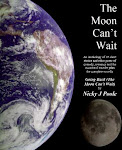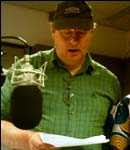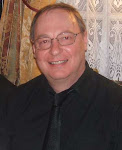Summary
Short, non-fiction article about biochemistry and the air
Speaking of keeping things in perspective, it can sometimes seem that we living beings have such a lot to worry about – sometimes we say, "Oh that this too, too solid flesh would melt!" (if we have undergone a classical education – otherwise, something similar.) We wish that we could be as free as air.
As a matter of fact we are.
This is a slightly more philosophical approach to keeping things in perspective. We imagine we are in some way special. Well, in some ways we are, but not because of what we are made of.
In fact, the whole Universe, in some respects, is a pretty simple place. Most of it is just a gas, literally. Hydrogen – the sort of gas we used to put in balloons to make them lighter than air, until we started thinking there might be a bit of a fire risk. After that we went for a slightly heavier gas, Helium.
75% of the ordinary stuff in the Universe, by mass, is Hydrogen. Approximately 23% is just Helium. That means that 98% of the Universe is made of just two gasses, while just 2% is something a little more interesting.
Stars are made of Hydrogen. Despite being such a light gas, if you get enough of it, it weighs quite a bit. In fact, if you get 10,000,000,000,000,000,000,000,000,000,000,000,000,000,000,000,000,000,000,000,000 atoms of Hydrogen together, they weigh so much that, at the centre of the crush, the atoms actually start squashing together and start turning into Helium. It is, indeed, because Hydrogen is so light that stars have to be so big, or this doesn’t happen.
When Hydrogen is turned into Helium, a little bit of mass is left over. This is given off as (quite a lot of) energy. It’s only about 0.7% of the original mass, but that still equals a lot of energy, according to that equation (by You-know-who.) And that is how stars burn.
I want to squash this story a bit, so I’ll say just this. In a nutshell, if a star is big enough and gets hot enough, the Helium can fuse – or burn, if you prefer – to make other elements, such as Beryllium, Carbon, Nitrogen and Oxygen and quite a few others up to Iron. That 2% of interesting stuff I mentioned earlier – it all came from burning inside massive stars. "We are star-dust," is not just a quote from a Joni Mitchell song, it’s quite literally true. (Whether "we are golden" is another matter.)
We live on a rocky planet with a metal core. It would actually be fair to say we live on a molten 7,000 mile wide nuclear reactor, which has the thinnest imaginable crust of cooler rock floating on it, but don’t tell the Friends of the Earth that. They’re a bit anti-nuclear power and might get a bit upset. But, to get the scale of things, imagine cutting an apple in half cutting through the skin and exposing the fruit beneath. The fruit is the molten bit of the Earth, and the skin – well, in proportion, that’s thicker than the rocky surface we spend all our lives on. Most of the time this is not a problem. Apart from earthquakes and volcanoes, that is.
But what has this got to do with how we come to worry, and what we are made of? We are made mostly of just a very few elements. Of the rest, we have only tiny traces. Ironically, despite these being present in only traces, we can nevertheless not do without them. Miss Iron or Calcium or a few others out of your diet and you will become very ill. But still, not to worry – a balanced diet of almost any meat, fruit and vegetables will have adequate traces of what you need.
But it’s the major part I want to draw your attention to. It turns out we are made mostly of just four chemical elements. We have to have Carbon. Carbon is in some ways the most remarkable element in the Universe, because it is very good at making compounds that contain chains or sometimes rings of Carbon atoms. Atoms are particles of one particular element, compounds are collections of atoms called molecules.
This makes it possible to make literally millions of different Carbon compounds. All living things contain these compounds. They are so important that the study of Carbon chemistry is not known as Carbon chemistry, it is called "Organic Chemistry." Ordinary Carbon is the same as soot. It is also the ‘lead’ in pencils (actually Carbon like this is known as graphite. Another, much, much less common version of Carbon is in the form of diamonds.)
The other three elements are Oxygen, Hydrogen and Nitrogen. Hydrogen is not usually found on Earth as it just floats away into space. But it can form a compound with Oxygen – water. Water, as a compound, is essential for all living things. Again, despite the fact that all living things contain Carbon, it is slightly ironic that the one compound that is essential to life does not contain Carbon. Sometimes things just go like that. Nitrogen is a fairly (seemingly) unexciting gas that makes up 4/5ths of the Earth’s atmosphere.
Here is the amazing part. 96% of our bodies is made of Carbon, Hydrogen, Oxygen and Nitrogen. (Sometimes, these are referred collectively to as CHON.) In other words, you are mostly just soot, water and air. The remaining stuff that makes You, you could find and fit into a bag of household potting compost.
As Carbon and Oxygen can make Carbon dioxide, which is a gas, and Hydrogen and Oxygen can form water and water can be a vapour, which is also a gas, both found in the atmosphere, you can see that 96% of you is made up of the same stuff as air!
(It doesn’t work as well to sing "We are sooty, wet air, we are golden," but it’s no less accurate than the original version.)
You can’t imagine air worrying, so why should you?
On the other hand, the next time you see a cloud, don’t say something unkind. They may have feelings too!
THE END
.jpg)






1 comment:
"We are stardust, we are golden,
We are billion year old carbon,
And we got to get ourselves back to the garden" ;-)
lucidlupin x
Post a Comment